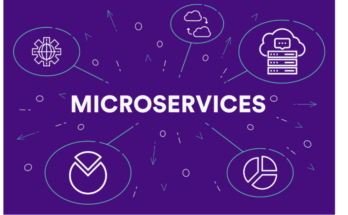Back-end development is a crucial aspect of web development that focuses on the server-side logic, databases, and functionality of web applications. A back-end developer plays a vital role in ensuring the smooth functioning and performance of web-based systems. This comprehensive guide will delve into the responsibilities, technologies, skills, and career opportunities associated with back-end development.
As Steve Jobs once said, “Technology is nothing. What’s important is that you have a faith in people, that they’re basically good and smart, and if you give them tools, they’ll do wonderful things with them.”
Importance of Back-End Development in Software Engineering
In today’s digital age, where online services and applications are ubiquitous, back-end development plays a pivotal role in delivering seamless user experiences. From managing data securely to optimizing server performance, back-end developers are instrumental in shaping the functionality and reliability of modern web applications.
Responsibilities of a Back-End Developer
Developing Server-Side Logic
Back-end developers are responsible for writing code that runs on the server, handling tasks such as user authentication, data processing, and server communication. They use programming languages like Java, Python, C#, or PHP to create efficient and scalable server-side logic.
Integrating Front-End Components with the Server-Side
Collaborating closely with front-end developers, back-end developers integrate user interfaces with server-side functionalities. This involves designing APIs (Application Programming Interfaces) that enable smooth communication between the front-end and back-end components of an application.

Ensuring High Performance and Responsiveness of Applications
Optimizing server-side code is crucial for ensuring applications are fast, responsive, and scalable. Back-end developers implement caching mechanisms, optimize database queries, and use performance monitoring tools to identify and address bottlenecks.
Implementing Security and Data Protection Measures
Security is paramount in back-end development. Back-end developers implement robust authentication mechanisms, data encryption techniques, and access control measures to protect sensitive data and prevent unauthorized access.
Managing Databases and Data Storage
Back-end developers work with database management systems like SQL, MySQL, PostgreSQL, or MongoDB to store and retrieve data efficiently. They design database schemas, write queries, and ensure data integrity and consistency.
Technologies and Skills Required
Programming Languages
- Java: Widely used for enterprise-level applications.
- Python: Known for its simplicity and versatility.
- C#: Commonly used with the .NET framework.
- PHP: Popular for server-side scripting.
Frameworks and Libraries
- Node.js: Enables server-side JavaScript programming.
- Django: High-level Python framework for complex applications.
- Flask: Lightweight Python framework for small to medium-sized apps.
- ASP.NET: Framework for building dynamic web apps on Windows.
Database Management Systems
- SQL: Essential for managing relational databases.
- MySQL: Popular open-source database management system.
- PostgreSQL: Advanced features and support for complex queries.
- MongoDB: NoSQL database for handling unstructured data.
Version Control Systems
- Git: Distributed version control system for tracking code changes.
- SVN: Centralized version control system for managing code repositories.
Understanding of APIs and Web Services
Knowledge of RESTful APIs, SOAP APIs, and other web service protocols is essential for facilitating communication between different components of a software system.
Career Opportunities and Growth in Back-End Development
Job Roles and Career Paths
Back-end developers can pursue roles such as Back-End Developer, Full-Stack Developer, Database Administrator, or DevOps Engineer.
Demand for Back-End Developers in the Industry
Industries such as e-commerce, finance, healthcare, and technology have a high demand for skilled back-end developers due to their critical role in developing and maintaining web-based applications.
Opportunities for Specialization and Further Learning
Specializations in areas like cloud computing, big data, cybersecurity, and API development offer ample opportunities for career growth and advancement in back-end development.
Read Also: What is Soft Skills and Why it is Important?
Conclusion
In conclusion, back-end development is a dynamic and essential field in software engineering, encompassing a wide range of responsibilities, technologies, and skills. Aspiring back-end developers can embark on a rewarding journey by acquiring the necessary knowledge, honing their technical skills, and staying updated with industry trends. The role of a back-end developer is pivotal in ensuring the functionality, security, and performance of web applications, making it a highly sought-after profession in the tech industry.
FAQ (Frequently Asked Questions)
1. What is the difference between front-end and back-end development?
Front-end development focuses on the user interface and client-side interactions, while back-end development deals with server-side logic, databases, and application functionality.
2. What programming languages are commonly used in back-end development?
Java, Python, C#, and PHP are among the commonly used programming languages in back-end development, each with its strengths and suitability for different types of applications.
3. How can I start learning back-end development?
You can start by learning a programming language such as Python or Java, understanding database management systems like MySQL or PostgreSQL, and exploring frameworks like Node.js or Django through online courses, tutorials, and hands-on projects.
4. What are the career prospects for back-end developers?
Back-end developers have excellent career prospects, with opportunities in various industries such as technology, finance, healthcare, and e-commerce. Specializing in areas like cloud computing, cybersecurity, or API development can further enhance career growth prospects




